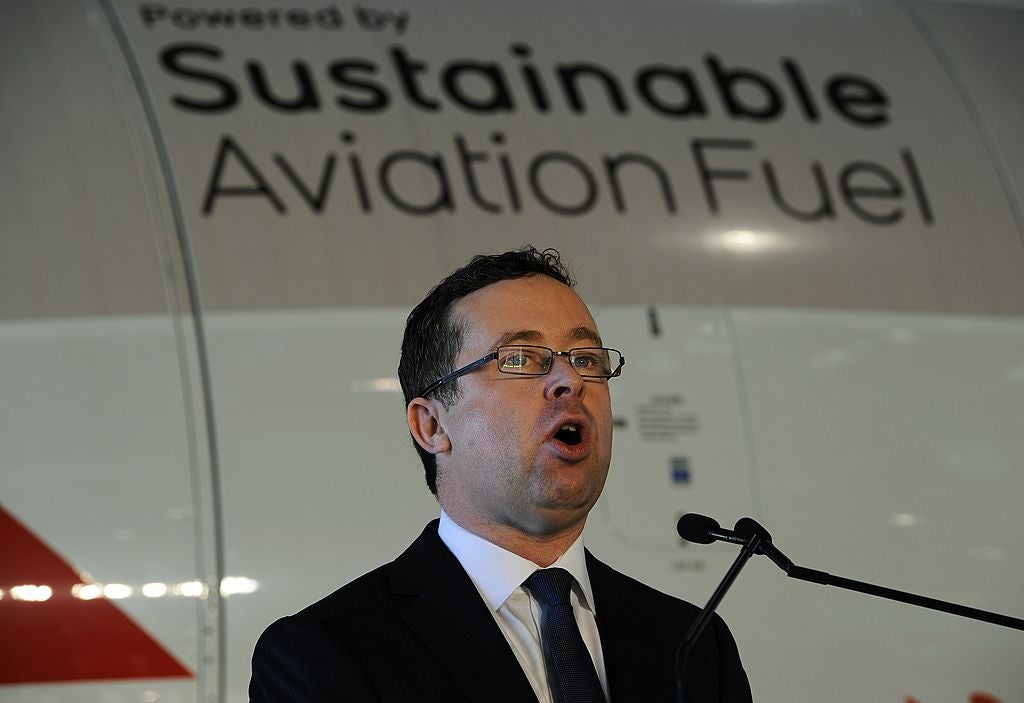
There was a lot of excitement in late June when Shell, Accenture and American Express Global Business Travel announced they were joining forces to launch Avelia, a blockchain-based sustainable aviation fuel (SAF) book and claim solution for business travel.
SAF is a fuel produced from sustainable resources that reduces aviation fuel life cycle emissions by up to 80% compared with conventional alternatives. The rise of SAF is seen as a significant development towards decarbonising the aviation industry, which is responsible for approximately 2.5% of global carbon emissions.
So how is SAF produced, who are the key players in the SAF ecosystem and how can SAF drive investments in new locations and markets?
What is SAF and what impact could it have?
Sustainable aviation fuel is manufactured by using a wide range of feedstock such as municipal solid waste, cellulosic waste, used cooking oil, camelina and other renewable sources, as defined by GlobalData. It is also called alternative jet fuel, renewable aviation fuel, biojet fuel, renewable jet fuel and sustainable alternative fuel.
The relatively low environmental impact of SAF is significant as it can reduce air travel carbon emissions by up to 80% across its life cycle, according to the GlobalData report. The fact that municipal waste can be used in the production of SAF means that it can also help to reduce landfill usage.
The use of SAF also has supply diversification advantages. The report states that feedstock from SAF grows in geographically diverse locations, which facilitates the creation of smaller supply chains that are easy to establish and maintain. The report adds that as the availability or production of feedstock is geographically diverse, it can create job opportunities in emerging markets.
Neste, Gevo, World Energy, Fulcrum Bioenergy and SkyNRG are among the major producers of SAF, according to the GlobalData report. Some of the key oil and gas market players that are either producing SAF or collaborating with SAF producers include BP, Shell, Total and Eni.
The report states that Qantas, KLM, SAS, Alaska Airlines and Lufthansa are among the airlines using SAF. However, there are a host of other companies that are either using a blend of SAF and conventional fuel, or say they are planning to use SAF exclusively.
For example, Malaysia Airlines operated its first passenger flight using a blend of Neste’s SAF and conventional jet fuel in June 2022. In the same month, regional aircraft manufacturer ATR, Swedish airline Braathens Regional Airlines and Neste teamed up on the first-ever 100% SAF-powered test flight on a commercial aircraft, where SAF was used in both engines.
How will SAF affect FDI markets?
With more airlines looking to use SAF, the demand for the fuel is set to increase, which would have implications for foreign investment across a number of geographies.
Australia provides an example. The country has been exporting large quantities of feedstock to be turned into SAF overseas, as it lacked a domestic commercial-scale SAF industry. However, a recent partnership between Australian carrier Qantas and European aviation corporation Airbus looks set to speed up the establishment of an SAF industry in Australia.
It is not only Australia that is attracting SAF-related investments, however. Saudi Arabian energy company Alfanar has stated that it will invest £1bn (SR3.75bn) in a project to produce SAF in Teesside, north-east England. The Lighthouse Green Fuels Project is set to generate 700 jobs for its construction and 240 more when operational.
So what is the downside?
Given that SAF promises to create new jobs, cut carbon emissions, drive green investment in poorer locations and more generally transform the oil, gas and aviation industries, is there any downside?
Unfortunately, yes. SAF generally costs about two to eight times as much as conventional jet fuel. According to BP, this is due to a combination of the current availability of sustainable feedstocks and the ongoing development of new production technologies. However, as the technology matures and becomes more efficient, it is hoped that this price differential will be reduced.
Indeed, the launch of Avelia is expected to lead to lower SAF prices. As Shell Aviation’s president Jan Toschka said in a press release, Avelia will help trigger demand for SAF at scale, providing confidence to suppliers to further increase investment in production, in turn helping to lower the price point for these fuels.
It remains to be seen what impact book and claim solutions such as Avelia will have when it comes to the uptake of SAF. It is, however, a hugely encouraging development as the 2030 deadline to achieve the UN Sustainable Development Goals draws closer. Airlines and aviation companies have for many years been among the more prominent villains in the fight against climate change. SAF could offer an opportunity to revamp the industry’s reputation.



